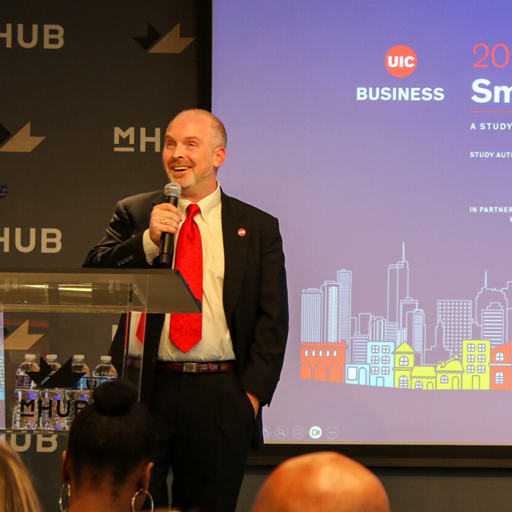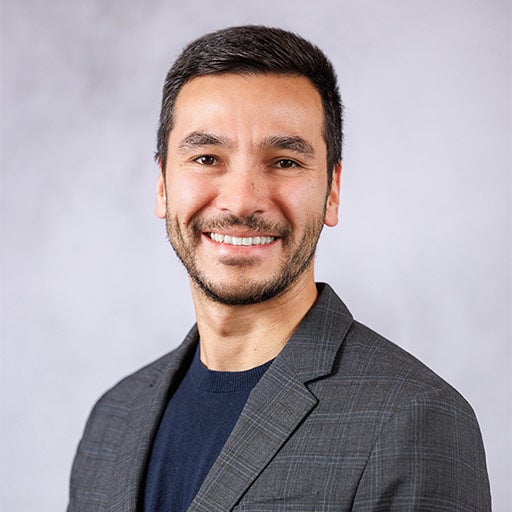Research

As Chicago’s only public research university, real-world problems are solved through innovation and discovery.
Research at the University of Illinois Chicago is helping to make sense of today’s vast amounts of computer-generated data; and driving economic development by moving research to practical application. Teaching and research are a potent blend—one informs the other. Researchers bring a deep understanding and a sense of the wonder of discovery to the classroom. UIC students have research opportunities that help them gain real-world experience in the classroom as they work side-by-side with federal grant-funded investigators. Students and faculty alike have the opportunity to work in an interdisciplinary research environment across UIC’s 16 colleges and schools. Faculty use their research to bolster student learning or effect changes in partner organizations and businesses.

A Study of Small Businesses in the Chicago Metropolitan Area
Chicago’s small businesses are feeling pretty optimistic about their future — it’s the city’s economy they’re less confident about. That’s just one of the notable takeaways of the 2024 Chicagoland Small Business Outlook, a survey put together by Professor Lynch in partnership with the Chicagoland Chamber of Commerce. Leaders from these organizations, as well as executives from TikTok, Wintrust, and other entities, discussed the study at a release event at mHUB innovation center in the West Loop on Thursday, Sept. 26.
Research Initiatives
CHIMS
Center for Health Information and Management Systems headed by Professor Ranganathan Chandrasekaran, is a trans-disciplinary research organization that is based at the college. CHIMS brings together research expertise from multiple UIC departments and colleges (e.g. health care sciences, business administration, information management, and computer science) to conduct research that expands the knowledge frontiers in health care information management, and also improves the practice of HIM, especially in the State of Illinois.
CERFRQ
Center for Education & Research in Financial Reporting Quality: The objective of the center is to further research and creative teaching methods in the area of corporate financial reporting quality. CERFRQ will develop a series of programs of sponsored research and conferences on the theory, practice, and analysis of corporate financial reporting quality. Its guiding criteria will be to strengthen the bridges between accounting research, accounting education, and accounting practice. In doing so it hopes to serve the public interest by supporting the integrity of financial reporting and the efficiency of capital markets. Its main emphasis will be on the use of both existing sources of data as well as the development of new sources of electronic data to support accounting research and teaching in the department.

Discounting Restricted Securities
Rustam Zufarov (University of Illinois Chicago), Tarik Umar (Rice University), and Emmanuel Yimfor (University of Michigan) examined the costs of trading restrictions by exploiting an SEC rule change eliminating an approximately 80-day restriction period in private placements for small issuers. They found that the restriction is binding, as dollar volume increases 19 percentage points vis-à-vis proceeds, and costly, as offering discounts fall by 8 percentage points.
Overall, the results suggest that trading restrictions are costly and have large effects on firms’ cost of capital. Their findings inform policymakers about the costs of imposing trading restrictions on investors and have implications for the more than 10,000 over-the-counter firms that still lack access to shelf offerings.